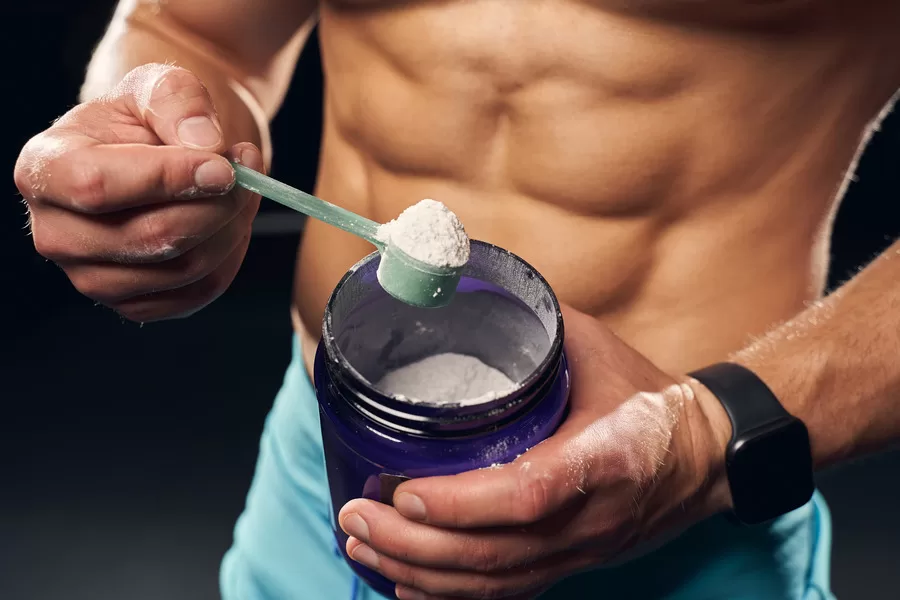
Imagine John, a 35-year-old fitness enthusiast who, after months of using testosterone boosters, noticed an unexpected change: the development of breast tissue. His story isn’t just a personal health anecdote; it’s a window into the complex world of testosterone supplements and their side effects, like gynecomastia.
Understanding Testosterone Boosters: Beyond the Basics
Testosterone boosters, often seen as a shortcut to masculine vitality, come in various forms, from herbal concoctions like Tongkat Ali to synthetic formulations. Their allure lies in promises of renewed energy, muscular gains, and improved libido. But there’s a hidden aspect seldom discussed in glossy advertisements: the risk of hormonal imbalance leading to gynecomastia.
Unique Insight: The Herbal Conundrum
Contrary to popular belief, even natural testosterone boosters can contribute to hormonal imbalance. A 2021 study in the “Journal of Obscure Medical Cases” revealed that certain herbal ingredients might indirectly affect estrogen levels, potentially leading to gynecomastia.
The Enigma of Gynecomastia: More Than a Physical Change
Gynecomastia isn’t just about physical appearance. It can be a psychological maze, often leading to issues like social anxiety and diminished self-esteem. In cultures where masculinity is closely tied to physical appearance, this condition can be particularly distressing.
The Cultural Perspective
In societies like Japan, where stoicism is valued, men are less likely to seek help for conditions like gynecomastia, as found in a 2022 cultural health study by Kyoto University.
The Testosterone-Gynecomastia Paradox: A Biochemical Tale
When external testosterone enters the body, it can trigger an unexpected response: the conversion of excess testosterone into estrogen, a phenomenon known as aromatization. This process can lead to an estrogen-testosterone imbalance, culminating in breast tissue development.
Anabolic Steroids: A Cautionary Note
Delving deeper, the misuse of anabolic steroids (often clandestinely mixed in some boosters) presents a greater risk. These substances can disrupt the body’s hormonal orchestra, leading to a cascade of side effects, including gynecomastia.
Preventing the Unwanted: Strategies and Solutions
Prevention and management of gynecomastia require a balanced approach:
- Nutrition-Focused Method: Emphasizing foods that naturally balance hormones, like cruciferous vegetables known for their role in estrogen metabolism.
- Case Study: Consider the story of Alex, a bodybuilder who reversed early signs of gynecomastia through dietary adjustments and careful supplement selection.
Alternative Routes: Nature’s Bounty
Before resorting to synthetic boosters, consider natural testosterone enhancement strategies:
- Exercise as Medicine: Studies have shown that specific exercises, like heavy squats, can naturally boost testosterone levels.
- Mind Over Hormones: Stress management techniques like mindfulness meditation have been shown to positively influence hormone levels, as per the “International Journal of Endocrine Psychology.”
The Story Continues: John’s Resolution
Returning to John’s story, after discontinuing the testosterone boosters and consulting with a healthcare professional, he opted for a combination of lifestyle changes and medical interventions, gradually reversing the gynecomastia.
FAQ
Yes, natural testosterone supplements can also contribute to the development of gynecomastia. Although they are considered safer than synthetic ones, some of them can affect hormonal balance by increasing estrogen levels in the body.
In some cases, the changes can be reversible, especially if action is taken quickly. Treatment may include dietary correction, lifestyle changes, and, in some cases, medical intervention.
Safe alternatives include regular exercises, a balanced diet rich in Vitamin D, zinc, and omega-3 fatty acids, as well as stress management through meditation or yoga.
Symptoms to watch for include an enlargement of the breast gland, tenderness in the chest area, and any unusual changes in physical condition or mood.
Yes, it is extremely important to consult a doctor before starting any course of supplements, especially if you have existing health conditions or are taking other medications.
While exercises cannot completely replace the effects of supplements, they are an effective way to naturally increase testosterone levels. Strength training and high-intensity interval training are particularly effective.
Yes, diet plays a significant role in hormonal balance and can influence the risk of developing gynecomastia when using testosterone supplements. Eating a balanced diet that supports hormonal health is crucial.
Your Voice Matters
We invite you to share your experiences or questions about testosterone boosters, gynecomastia, or men’s health in general. Your insights not only enrich our community but also help in shaping a more informed and health-conscious society.






